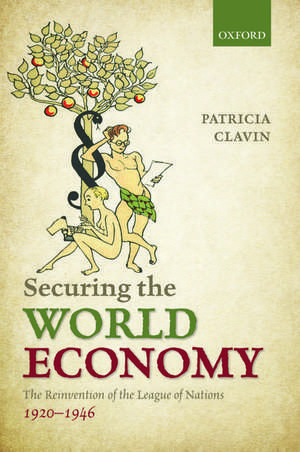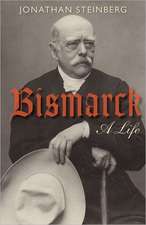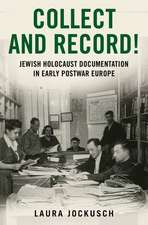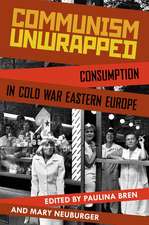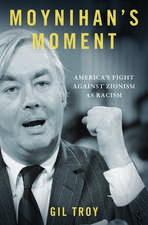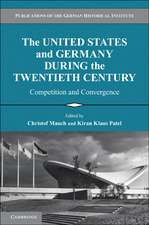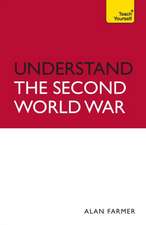Securing the World Economy: The Reinvention of the League of Nations, 1920-1946
Autor Patricia Clavinen Limba Engleză Paperback – 2 dec 2015
| Toate formatele și edițiile | Preț | Express |
|---|---|---|
| Paperback (1) | 320.37 lei 31-37 zile | |
| OUP OXFORD – 2 dec 2015 | 320.37 lei 31-37 zile | |
| Hardback (1) | 894.16 lei 31-37 zile | |
| OUP OXFORD – 21 feb 2013 | 894.16 lei 31-37 zile |
Preț: 320.37 lei
Preț vechi: 363.41 lei
-12% Nou
Puncte Express: 481
Preț estimativ în valută:
61.32€ • 66.63$ • 51.54£
61.32€ • 66.63$ • 51.54£
Carte tipărită la comandă
Livrare economică 09-15 aprilie
Preluare comenzi: 021 569.72.76
Specificații
ISBN-13: 9780198766483
ISBN-10: 0198766483
Pagini: 414
Dimensiuni: 156 x 231 x 23 mm
Greutate: 0.61 kg
Editura: OUP OXFORD
Colecția OUP Oxford
Locul publicării:Oxford, United Kingdom
ISBN-10: 0198766483
Pagini: 414
Dimensiuni: 156 x 231 x 23 mm
Greutate: 0.61 kg
Editura: OUP OXFORD
Colecția OUP Oxford
Locul publicării:Oxford, United Kingdom
Recenzii
this is an impressive and meticulously researched monograph that has much to offer scholars working on all aspects of modern international history.
There are so many insights that it is impossible to do justice to them all...This book is a major contribution not just to the history of international organization in the twentieth century, but to an understanding of the actual social and political processes that underpinned the amazing leap into institutionalized international relations witnessed by its second half.
This book will last and is unlikely to be replicated' ... it has unquestionably proved that in those years the League of Nations undertook a major role in economic and financial diplomacy and has shed much light on its previously little-known activities.
Patricia Clavin has written a pioneering account of the League's Economic and Financial Organization (EFO) and substantially advances our understanding of the League system... Thanks to the rich research that underpins this book, we are now able to peek into committee rooms and private offices, exploring the previously unknown aspects of interwar internationalism.
Clavin offers a detailed analysis of the transformation of the League of Nations from an institution dedicated to maintaining peace after the Great War to one focused on a variety of economic policies beyond the initial scope of Wilsonian free trade ... Recommended.
this new book by Patricia Clavin, treat[s] individual international organizations more in-depth based on fresh archival research.
Solidly based on multi-archival research and wide reading ... opens up a new and potentially rich field for investigation.
In presenting this treasure trove of material Professor Clavin has performed a considerable service for all students of the League and its era.
What is particularly pleasing and refreshing is that Clavin has retained the human dimension in her research ... Patricia Clavin has produced an important book that rightfully rehabilitates a crucial aspect of the League's activities, international economic management, hitherto occulted by the general and unwarranted cataloguing of the League of Nations as an outright failure.
There are so many insights that it is impossible to do justice to them all...This book is a major contribution not just to the history of international organization in the twentieth century, but to an understanding of the actual social and political processes that underpinned the amazing leap into institutionalized international relations witnessed by its second half.
This book will last and is unlikely to be replicated' ... it has unquestionably proved that in those years the League of Nations undertook a major role in economic and financial diplomacy and has shed much light on its previously little-known activities.
Patricia Clavin has written a pioneering account of the League's Economic and Financial Organization (EFO) and substantially advances our understanding of the League system... Thanks to the rich research that underpins this book, we are now able to peek into committee rooms and private offices, exploring the previously unknown aspects of interwar internationalism.
Clavin offers a detailed analysis of the transformation of the League of Nations from an institution dedicated to maintaining peace after the Great War to one focused on a variety of economic policies beyond the initial scope of Wilsonian free trade ... Recommended.
this new book by Patricia Clavin, treat[s] individual international organizations more in-depth based on fresh archival research.
Solidly based on multi-archival research and wide reading ... opens up a new and potentially rich field for investigation.
In presenting this treasure trove of material Professor Clavin has performed a considerable service for all students of the League and its era.
What is particularly pleasing and refreshing is that Clavin has retained the human dimension in her research ... Patricia Clavin has produced an important book that rightfully rehabilitates a crucial aspect of the League's activities, international economic management, hitherto occulted by the general and unwarranted cataloguing of the League of Nations as an outright failure.
Notă biografică
Patricia Clavin was educated at eleven different schools before studying History at King's College, London. She is Professor of International History and the Zeitlyn Fellow and Tutor in History at Jesus College, Oxford.
